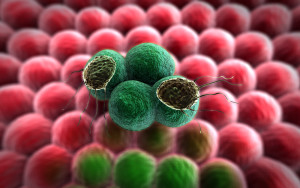Health
Aussie drug stops tumor growth in advanced breast cancer patients

(ShutterStock )” width=”300″ height=”188″ /> File: The tablets, Palbociblib, Ribociclib and Abemaciclib, work differently from hormone treatments currently used by deactivating the process that allows cancer cells to grow uninhibited. (ShutterStock )
MELBOURNE, July 28— A breast cancer treatment developed by Australian researchers has successfully halted tumor growth for twice as long as previously recorded, it was announced Friday.
The therapy involves taking a new class of drug, called CDK4 and CDK6 inhibitors, and it significantly delayed tumor growth in patients with advanced breast cancer.
Researchers from the Peter MacCallum Cancer Center (PMCC) will now trial the therapy in patients with early-stage cancer in an attempt to stop the disease from spreading throughout the body.
The tablets, Palbociblib, Ribociclib and Abemaciclib, work differently from hormone treatments currently used by deactivating the process that allows cancer cells to grow uninhibited.
Richard de Boer, an oncologist at the PMCC and Epworth hospital, said that developing a tablet that has no side effects, such as the inhibitors, is an “exciting” step.
“We’ve got good chemotherapy drugs, but they’re toxic. They require intravenous treatment, you lose your hair and you can feel really sick,” de Boer told Australian media Friday.
“If you can come up with a combination treatment that delays the need for chemotherapy by 10, 20 or 30 months, that’s a great achievement for women with advanced disease.”
More than 4,600 women will participate in the new global trial of Palbociblib where the new drug’s ability to stop cancer from returning after surgery, chemotherapy and radiation will be compared to standard hormone therapy.
“When a cancer grows back again, you’ve got to look at a new treatment,” de Boer said.
“The idea that you might be able to completely arrest the cancer and stop it in its tracks for one to three years in advanced patients, and stop it completely in early-stage women, is exciting.
” (Xinhua)





















